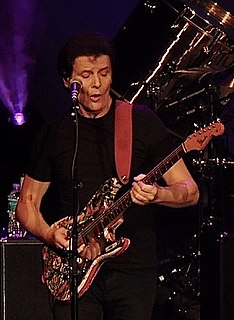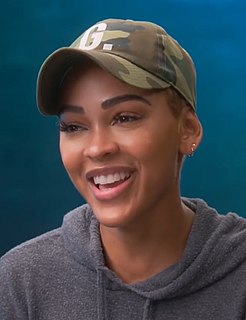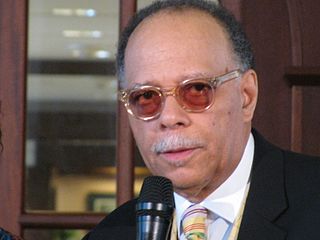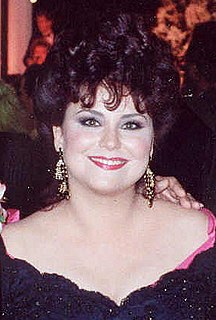A Quote by Merry Clayton
My family is part Creole, and we're Indian, and we're also very, very black. My father was so black, he was blue.
Related Quotes
One of the facets of growing up the way I did, I never had the experience of being solely in the black community. Even my family, my mother is what they call Creole, so she's part French, part black, and grew up in Louisiana. It's a very specific kind of blackness that is different than what is traditionally thought of as the black community and black culture. So, I never felt a part of whatever that was.
We were a very politically active family. My father was one of the first lawyers in South Africa to have a black partner, so I grew up very aware of the struggle going on. Coming from that background, it really gave me chills to have my music be a part of the election of the first black American president.
It's very necessary, showing the positive aspect of a black father. We see a lot of black women being the head of the household and holding the house down, but I think we need to have those images because there are black fathers out there who are doing the same thing and who are the glue to the family. That's who Black Lightning is.
I would say I'm black because my parents said I'm black. I'm black because my mother's black. I'm black because I grew up in a family of all black people. I knew I was black because I grew up in an all-white neighborhood. And my parents, as part of their protective mechanisms that they were going to give to us, made it very clear what we were.
I felt like it was a courageous show [Black-ish] from the beginning. We are a black family - we're not a family that happens to be black. But the show is not even about us being black. The show is about us being a family. That is groundbreaking - on TV, the black characters either happen to be black or they're the "black character," where everything they say is about being black. I think that's the genius.
My father was a dark-skinned brother, but my mother was a very fair-skinned lady. From what I understand, she was Creole; we think her people originally came from New Orleans. She looked almost like a white woman, which meant she could pass - as folks used to say back then. Her hair was jet-black. She was slim and very attractive.



































